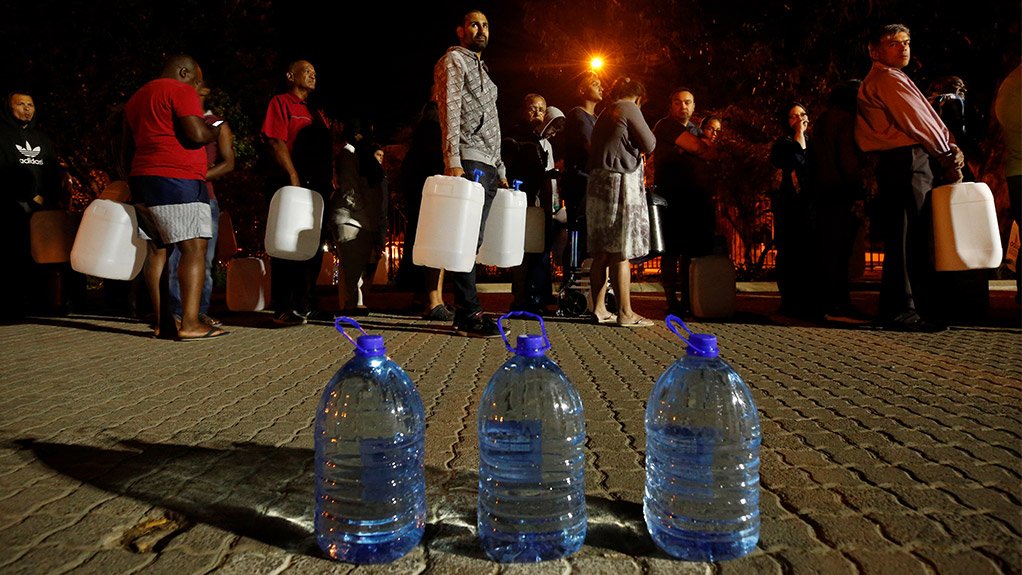Cape Town's water consumption rose to 546-million litres a day this week – up from 520-million last week and 511-million the week before.
Although dams that supply the city are 76% full, experts say a trajectory of increased consumption is not sustainable.
The increased consumption comes as restrictions were relaxed from October 1, allowing residents to raise their water use from 50 litres a day to 70.
Coupled with the 25% lower water tariffs, this could be a sign that residents are "slacking off" slightly on water-saving measures.
And the word appears to have gone out to some tourists that there is no longer a need to conserve water in Cape Town, with one local bed and breakfast manager reporting that last week a single couple had used eight towels in just two days.
Karen Greeff, who manages several bed and breakfast establishments on the False Bay coast, said this happened in spite of the notices in the B&B explaining the water restrictions.
Projected hotter, drier climate
"And we had a family from Japan last week who also believed there were no water restrictions, because they said they had read the dams were 75% full," Greeff said.
"It's tricky, because on the one hand everyone is saying: 'Bring on tourists, Cape Town needs them', plus the dams are way fuller than they have been for years, but no one is really explaining why we must still be on restrictions," Greeff said.
Water experts say because of the projected hotter, drier trend of climate change, and the unpredictability of rainfall, the restrictions should remain in place to avoid the dire water crisis Cape Town faced last summer.
Nicky Allsopp of the South African Environmental Observation Network said from now on the dam levels would drop by between one or two percent a week during the summer.
The winter rainfall of 2018 had been "very mediocre", enough to bring the dams up to 76%, but not like 2014, before the three-year drought, when they were overflowing after winter.
This year June and September had almost average rainfall, but July and August were well below average.
'Not the time to get complacent'
Asked if consumption of 546-million litres a day was a concern, Allsopp said: "If that trajectory continues, and goes up as people become increasingly lax with water saving, then it will be a problem.
"We haven't got a short-term water problem, but if you look at rising temperatures with climate change, which are apparently really going to affect us, we could be facing many more years when rainfall is low, rather than this drought being a one-off. We need a regime shift in water. We seem to have done relatively well so far, but this is not the time to get complacent."
Dr Willem de Clercq of the Water Institute at the University of Stellenbosch said while it appeared that the region could be set to emerge from a dry cycle into a wetter one, it was not definite.
"It's unpredictable. So the best one can do is to make sure the 76% we have now is managed well so that we can get through the next two winters even if they have below average rainfall," De Clercq said.
De Clercq said the city would use about 30% of the 76% over this summer and would go into winter with around 45%.
"And if the winter of 2019 has bad rainfall, and the dams increase only to 55%, then you go into the next summer with lower levels – but you still need to take your 30% for consumption from those lower levels."
No more 'free-for-all' water use
City of Cape Town Deputy Mayor Ian Neilson said the increased water consumption was "obviously a concern".
"Given that last week was the first full week of summer weather, it is not unexpected. It is an increase, but not a great amount, given where the dams are, but we will keep a watch on it," Neilson said.
Although the City had relaxed water restrictions, it still had to be cautious and not relax too far, too fast, Neilson said.
"I think we will be fine, as long as it is understood that we can't go back to a complete free-for-all water usage, and that we have to have a water-conscious approach."
According to the City's figures since mid-March, Cape Town's weekly consumption during Level 6 restrictions fell mainly between 500-million and 530-million litres a day. The target then was 450-million litres a day.
With the current Level 5 restrictions, the target is 500-million litres a day.
EMAIL THIS ARTICLE SAVE THIS ARTICLE
To subscribe email subscriptions@creamermedia.co.za or click here
To advertise email advertising@creamermedia.co.za or click here











